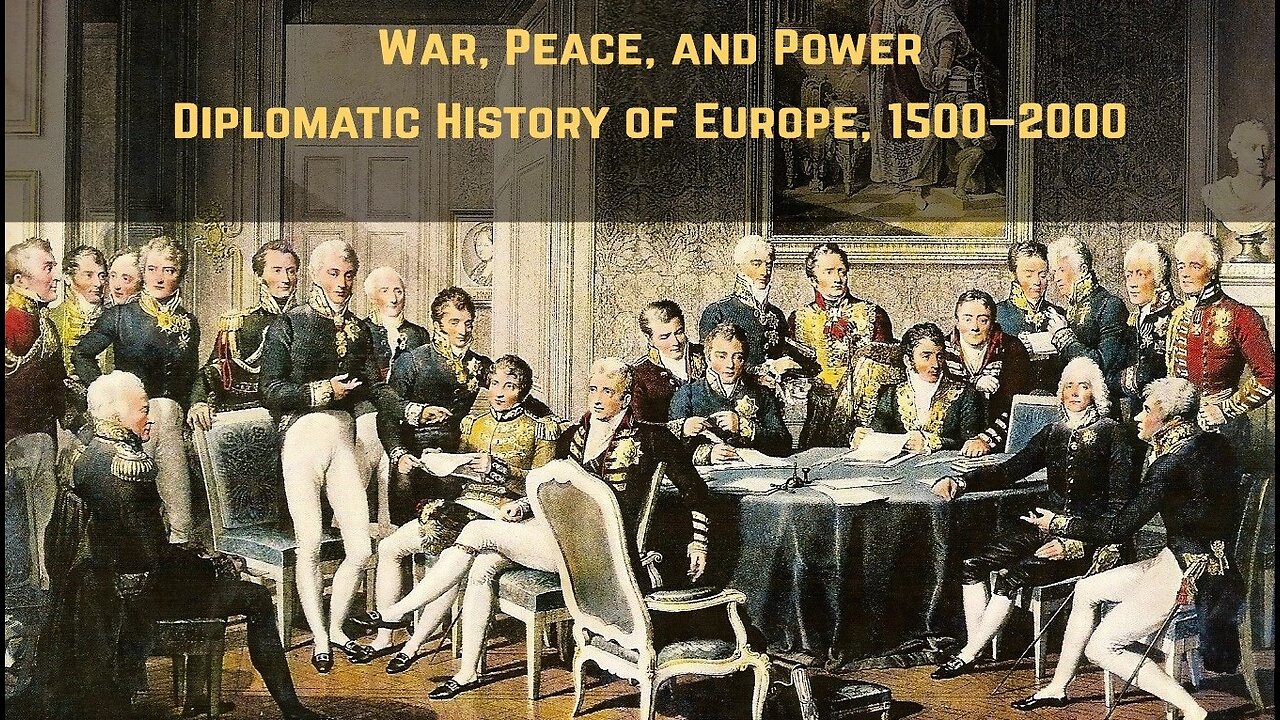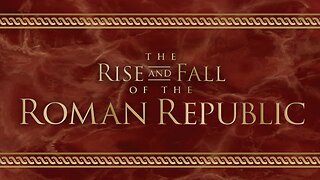Premium Only Content

Diplomatic History of Europe 1500 - 2000 | 18th-Century Competition (Lecture 10)
Lecture 10: This lecture, which covers the period 1740–1795, explores how the paradoxes of the Age of Enlightenment affected international relations. Did new ideas produce a more rational and harmonious diplomatic order, as well as increased respect for human rights? On the one hand, thinkers of the Enlightenment crafted plans for a permanent international peace based on reason, tolerance, and international law, while at the same time, military and diplomatic competition achieved a new level of cut-throat intensity and cynicism. This was most evident in the War of the Austrian Succession (1740–1748), with Frederick “the Great” of Prussia attacking the Austria of Maria Theresa without provocation. This conflict was followed by a diplomatic revolution engineered by Maria Theresa and her ministers, the global Seven Years’ War (1756–1763), and the brutal carving up of an independent country, the partitions of Poland-Lithuania by Russia, Prussia, and Austria. Ironically, precisely this period of rivalry also enshrined new patterns of diplomatic practice.
Essential Reading:
M. S. Anderson, The Rise of Modern Diplomacy 1450–1919, pp. 41–102 and 163–74.
Supplementary Reading:
Gerhard Ritter, Frederick the Great.
-
 33:35
33:35
The Great Courses
5 days agoThe Rise And Fall Of The Roman Republic | Julius Caesar and the Collapse of the Roman Republic (Lecture 11)
175 -
 2:02:20
2:02:20
Nerdrotic
4 hours ago $12.23 earnedDECLASSIFIED: JFK, MLK UFO Immaculate Constellation Doc | Forbidden Frontier #089
53.4K2 -
 3:00:14
3:00:14
vivafrei
11 hours agoEp. 248: "Bitcoin Jesus" Begs Trump! Rekieta Gets Plea Deal! Pardons, Deportations, Bird Flu & MORE!
104K94 -
 3:44:06
3:44:06
Rising Rhino
10 hours ago $11.78 earnedWashington Commanders Vs Philadelphia Eagles: NFL NFC Championship LIVE Watch Party
46.2K3 -
 13:00
13:00
Exploring With Nug
5 hours ago $3.83 earnedHe Went To Get A Haircut And Vanished WIthout a Trace!
34.3K1 -
 18:53
18:53
DeVory Darkins
1 day ago $26.35 earnedTrump JUST ENDED Mayor Karen Bass During HEATED Meeting
70.3K211 -
 21:06
21:06
Russell Brand
8 hours agoIT'S COMING
125K342 -
 21:26
21:26
Stephen Gardner
1 day ago🔥What JUST leaked out of Congress must be STOPPED NOW!
127K275 -
 53:25
53:25
tether
11 days agoStability and Freedom in Chaos: The Story of Tether USD₮ | Tether Documentary (USDT)
140K5 -
 56:44
56:44
VSiNLive
2 days agoFollow the Money with Mitch Moss & Pauly Howard | Hour 1
77.8K2